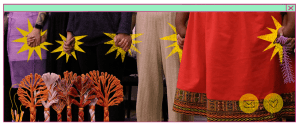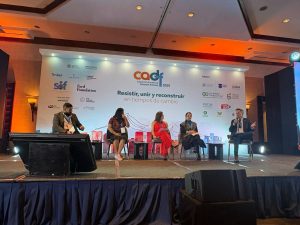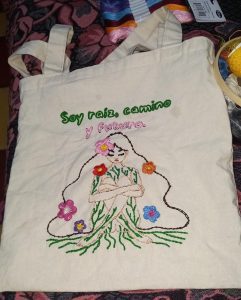
The Mesoamerican Route: An Intersectional Tapestry of Struggles and Resistance
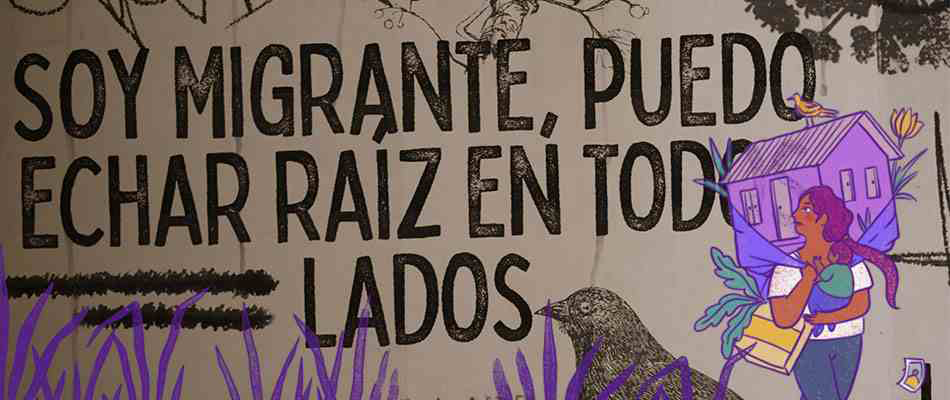
Table of Contents
- Migration on the Mesoamerican Route
- Main causes of migration in Mesoamerica
- 1. Inequality and precarious living conditions.
- 2. Insecurity and widespread violence.
- 3. Territorial dispossession and climate change.
- 4. Gender-based violence.
- Challenges faced by Migrants along the Mesoamerican Route
- Organizations working on the Mesoamerican Route
- Call to action
Currently, racialized people from the Global South in situations of economic, political, social, and/or climate vulnerability face increasing obstacles when migrating. Many governments have adopted restrictive anti-immigrant policies that criminalize the transit of people and hinder the regularization of their migration status, especially in the Global North.
This article offers an introductory look at the publication “Migration along the Mesoamerican Route: An Intersectional Tapestry of Struggles and Resistance.”
The research compiles the experiences of 24 organizations, collectives, and civil society groups from El Salvador, Honduras, Guatemala, Mexico, and the United States, partners of the FCAM Foundation and the Global Fund for Children, who work with people on the move, especially children, youth, women, LGBTQI+ people, indigenous populations, families of missing persons, victims of sexual violence, and others.
To understand the importance of these organizations’ work, it is essential to understand the current migration context and the conditions that force thousands of people to undertake the Mesoamerican Route.
Migration on the Mesoamerican Route
The colonial history of Mesoamerica is marked by multiple forms of violence, especially those related to the extraction of natural and human resources by European powers. This colonial legacy has left deep wounds on the region, which still faces conditions of precariousness, exploitation, political and economic dependence, patriarchy, racism, and classism.
In this context, the Mesoamerican Route, which crosses several countries with different legal frameworks, lacks a regional legal unity. This fragmentation impedes the implementation of comprehensive public policies that guarantee the safety, protection, and dignity of migrants.
Furthermore, the normalization of increasingly anti-immigrant governments exacerbates the restrictiveness of migration measures, affecting travel times and increasing the risks for those who migrate.
These difficulties are compounded by other challenges:
The strengthening of anti-immigration policies that fuel narratives of hate, discrimination, and xenophobia, creating hostile, unsafe, and violent environments for those who migrate in search of better conditions.
Organized crime, which kidnaps and recruits migrants for illegal activities.Racist, classist and xenophobic attitudes in some sectors of society.
Main causes of migration in Mesoamerica
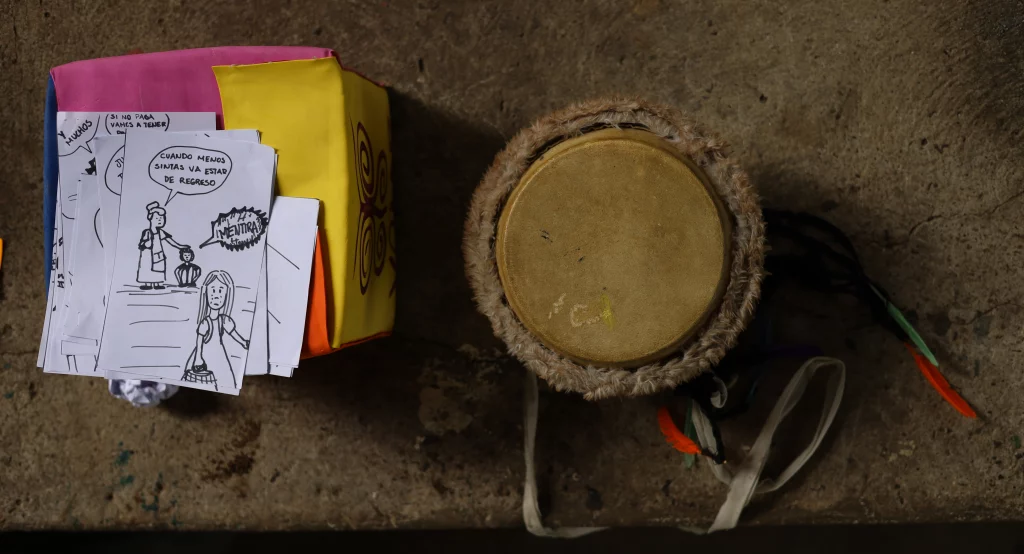
1. Inequality and precarious living conditions.
Many people in the region cannot lead dignified lives due to multiple structural factors, such as lack of employment, limited access to education, low wages, and a lack of effective public policies. This combination of inequalities prevents them from meeting basic needs, such as housing, food, healthcare, and education.
2. Insecurity and widespread violence.
The precariousness of living conditions and increasing social inequalities increase violence and insecurity in Mesoamerican countries. This situation is exacerbated by the lack of public social welfare policies, institutional corruption, and cultural factors that promote individualism.
One of the most alarming effects of the absence of public policies that guarantee basic rights is the growth and consolidation of organized crime, which primarily affects women, youth, and children.
3. Territorial dispossession and climate change.
Mesoamerica is one of the regions most vulnerable to climate change, and its effects disproportionately impact women and girls, who represent 80% of people displaced by climate change worldwide.
Despite this, rural and indigenous communities in Central America and Mexico maintain a deep connection to the land and do not wish to abandon it. However, natural disasters, environmental crises, pollution, water scarcity, and lack of resources have forced many people to migrate in search of other means of subsistence.
4. Gender-based violence.
This kind of violence is one of the main causes of forced migration in Mesoamerica, particularly affecting women, children, and LGBTQI+ people, who face multiple forms of structural violence that force them to abandon their territories in search of safety and decent living conditions.
LGBTQI+phobia in the region has intensified due to the influence of conservative and religious groups that promote hate speech. These ideologies attempt to influence public policies and sectors of civil society with messages of “social cleansing” and rejection of diverse gender identities and sexual orientations, creating a hostile environment that violates the human rights of LGBTQI+ people.
Challenges faced by Migrants along the Mesoamerican Route
Depending on the causes of migration, migrants face different kinds of challenges in their places of origin, in transit, at their destination, and, if applicable, on returning to their communities.
These challenges include various forms of violence, exclusion, and discrimination, which negatively impact their lives. Despite this, migrants have proven to be remarkably resilient, taking ownership of their journeys and life plans, forming support networks, and exercising leadership in diverse ways.
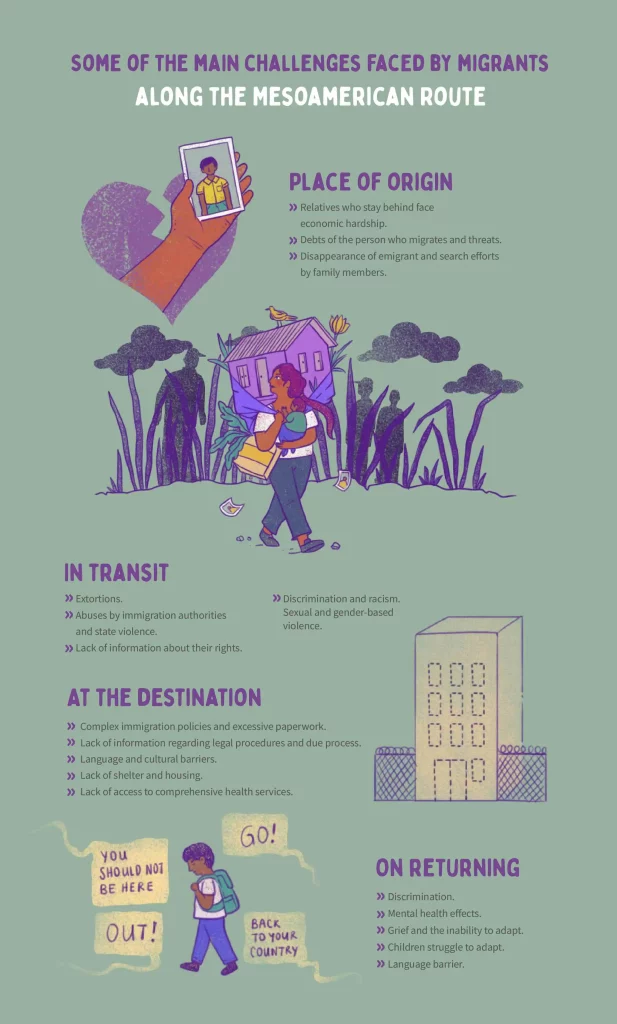
Organizations working on the Mesoamerican Route
Despite the complex Mesoamerican context, organizations, collectives, and civil society groups remain beacons of hope and resilience.
These organizations are part of a solidarity network that is essential to addressing the structural violence that the region faces. Their work not only provides support and protection but also renders visible the root causes of migration in Mesoamerica, such as poverty, violence, forced displacement, and social exclusion.
Their work is based on the recognition of diversity and inclusion, through participatory processes and decentralized decision-making. These organizations apply innovative approaches that reflect their commitment to migrant communities.
Their values and the tools they have developed are based on care, active and horizontal listening, the co-creation of pathways and projects, the use of art and culture to build community, and the generation and sharing of knowledge and information that is useful for migrants and their journeys. They also provide workshops and spaces for training, reflection, dialogue, and alignment; they provide tools for access to justice, the defense of human rights, and the strengthening of communities.
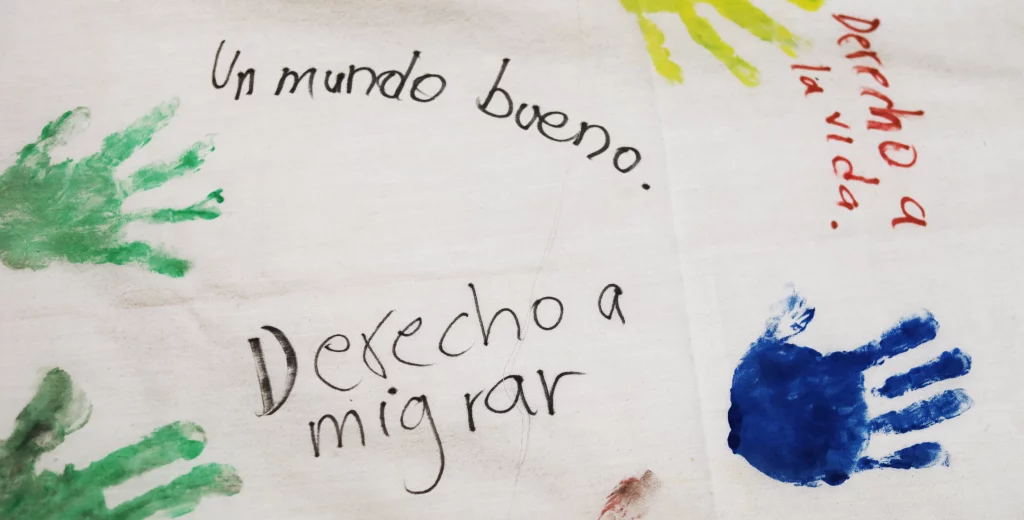
Despite their crucial work, however, these organizations face multiple challenges. Oftentimes, they are not financially sustainable; their members are at risk of burnout due to their work loads, and they must contend with the many obstacles that are part and parcel of working with government entities. Nevertheless, they continue to find ways to overcome these challenges through practices rooted in solidarity, collective learning, and awareness-raising processes.
These organizations walk hand-in-hand with the migrant community, forging ties, strengthening resistance, and fighting together in defense of life and human dignity.
Call to action
If you’re interested in learning more about this topic, we invite you to download and read the publication “Migration along the Mesoamerican Route: An Intersectional Fabric of Struggles and Resistance,” (Spanish version).
We appreciate your help in sharing this research and following us on our social media:
LinkedIn: FCAM Foundation
Bluesky: @fcamfoundation.bsky.social
Facebook: FCAM Foundation Instagram: fcamfoundation
Instagram: fcamfoundation

